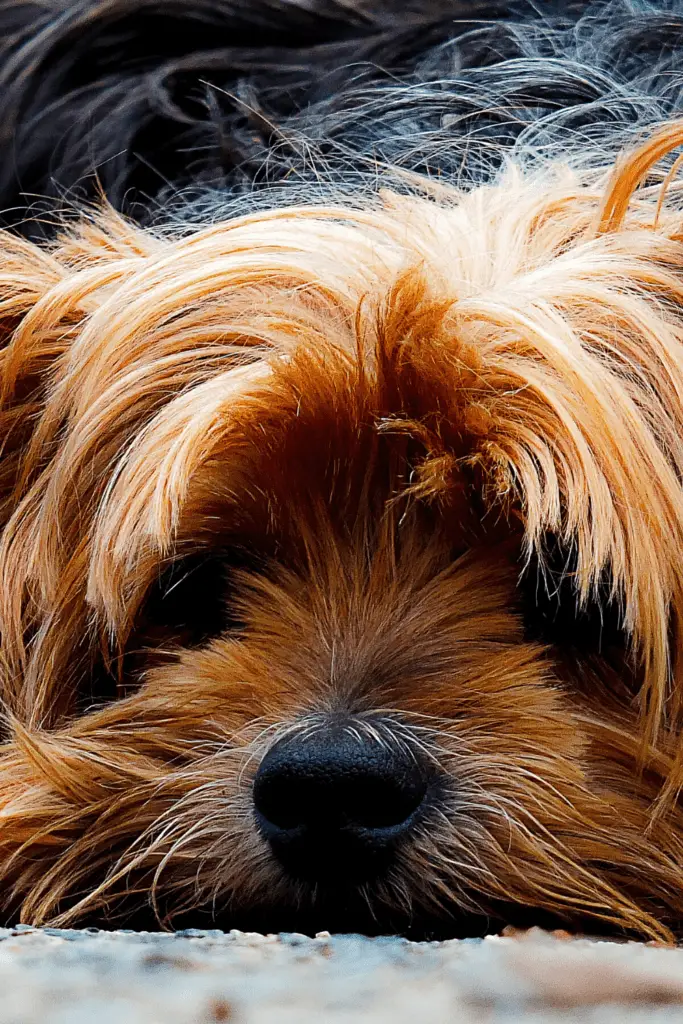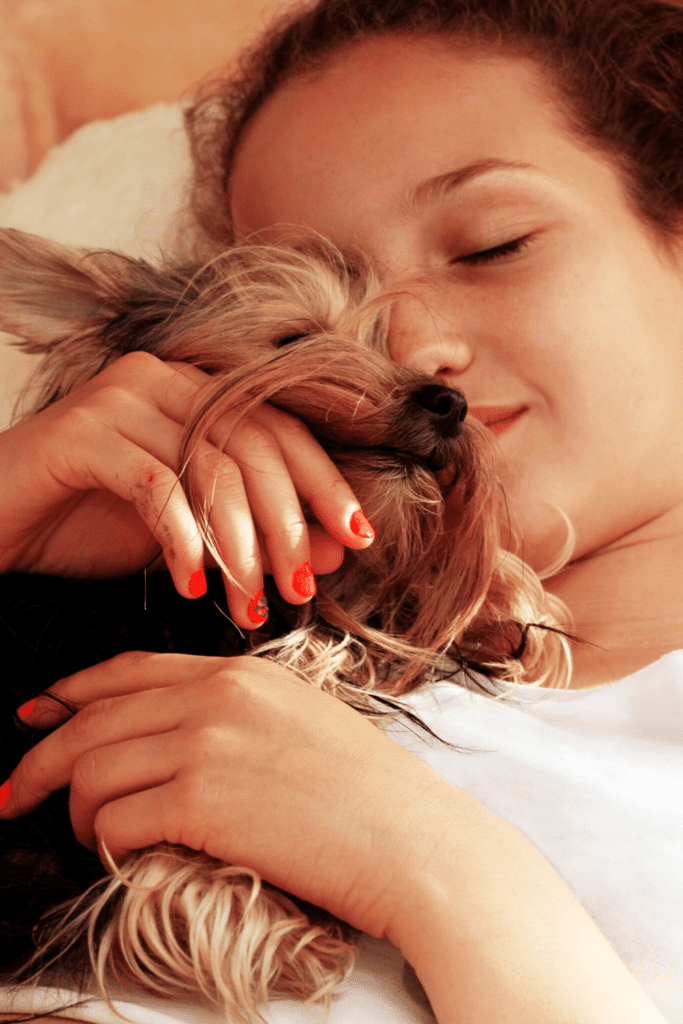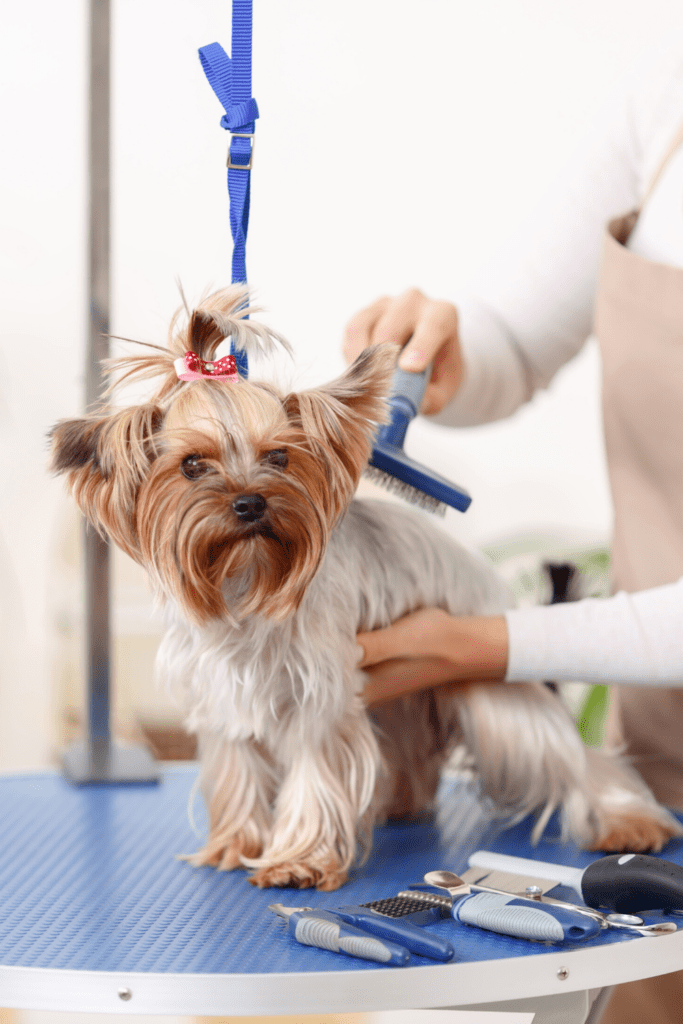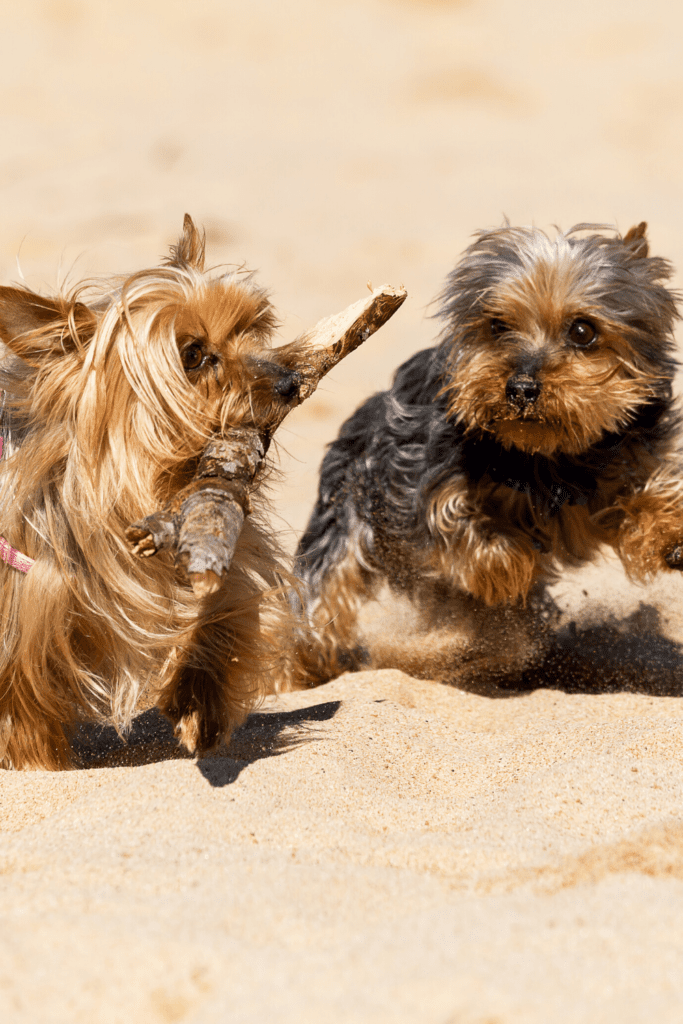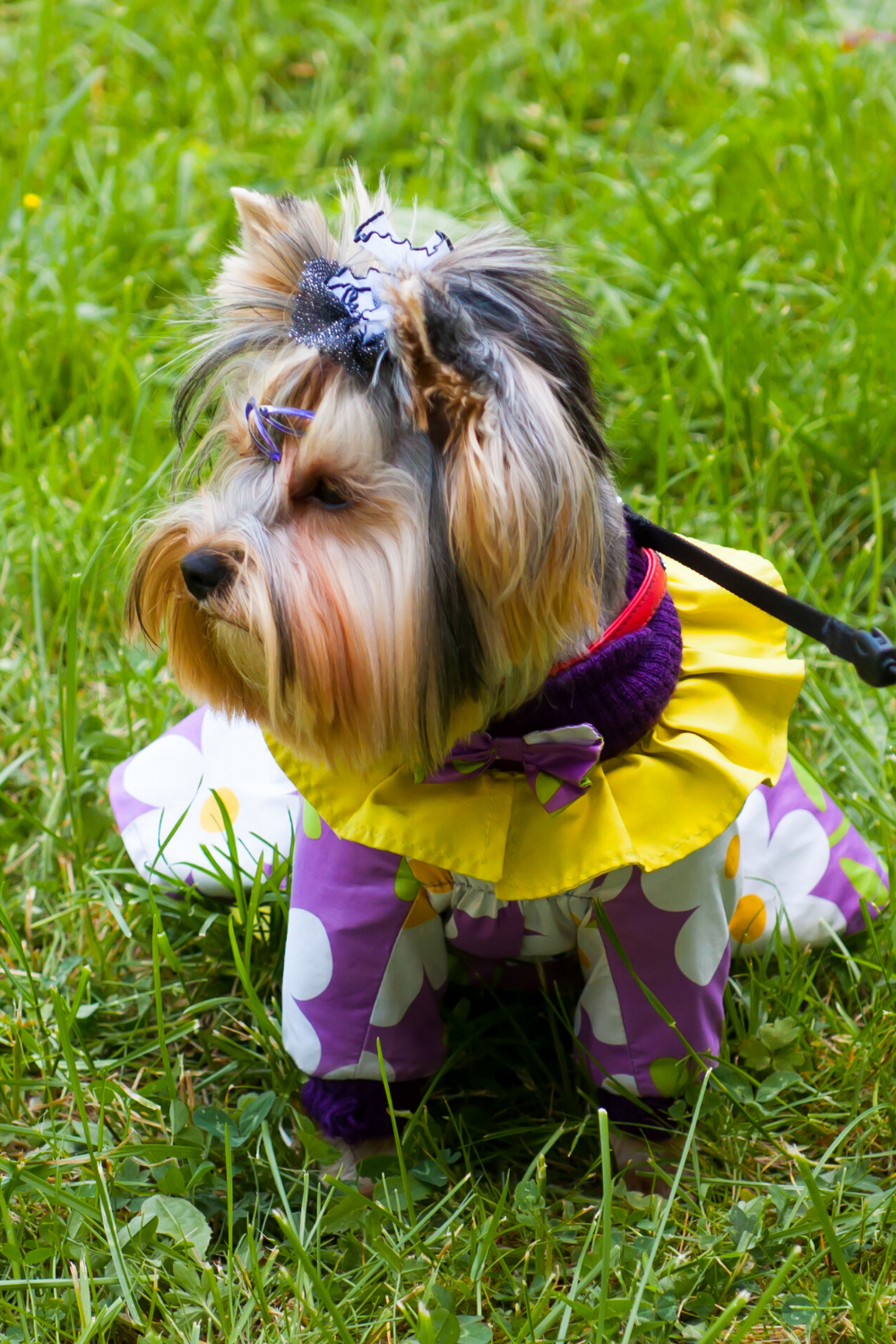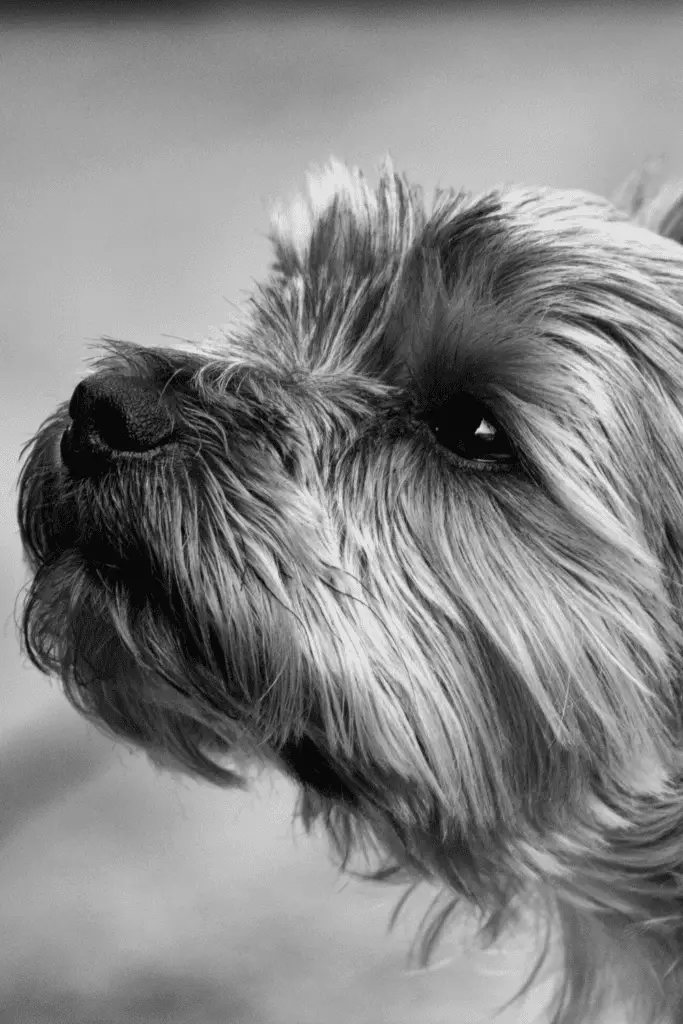Yorkshire terriers are small dogs in the terrier group, commonly referred to as “Yorkies.” These dogs are known for their intelligence, playfulness, and silky coats. Often weighing less than seven pounds, Yorkshire terriers are a popular breed for a companion dog. They also make fantastic agility and show dogs.
Table of Contents
- 1 Breed History
- 2 Personality
- 3 Exercise Needs
- 4 Grooming and Care
- 5 Who Is This Dog For?
- 6 Known Health Issues
- 7 Related posts:
- 8 Why Yorkshire Terriers Make the Best City Pets: A Love Story
- 9 Yorkshire Terrier Puppies: What You Must Know Before Bringing One Home!
- 10 25 Yorkshire Terrier Dogs
- 11 Teacup Yorkshire Terrier: The Ultimate Guide
Breed History
The Yorkshire terrier originated in Yorkshire county, England. During the 1800s, miners in the area began breeding different terriers to produce the ideal ratting dog. Some of the breeds used are black-and-tan terriers, Skye terriers, Paisley terriers, and Maltese terriers. In these early times, any terrier-type dog from the area got referred to as a Yorkshire terrier.
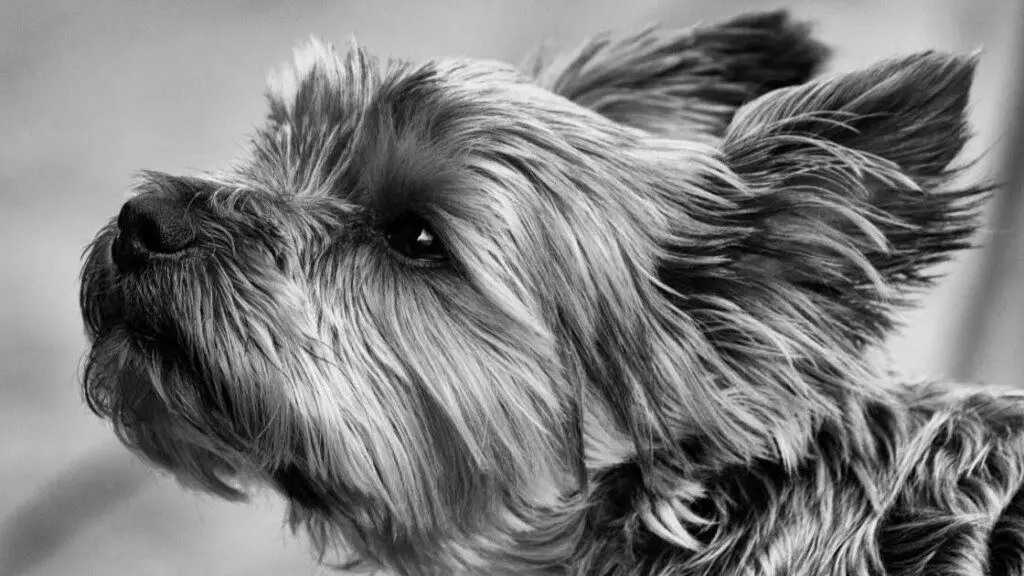
A famous dog named Huddersfield Ben got credited as the first official Yorkshire terrier, and today’s standards for the breed got based on him. In 1865, he enjoyed a successful career as a show dog, earning 74 titles before he was struck by a carriage and died in 1871. Many Yorkshire terriers in dog shows today can trace their lineage back to Huddersfield Ben.
After gaining prominence in Victorian England, Yorkies came to American shores in 1872. The first Yorkshire terrier got registered with the American Kennel Club in 1885, but the breed’s popularity soon waned. It wasn’t until the late 1940s when the celebrity status of “Smoky the Yorkie Doodle Dandy” inspired renewed interest in the breed among Americans. Smoky was a war dog who served beside Corporal William A. Wynne during WWII, becoming a source of inspiration and boosted morale during the war. Today, the AKC identifies the Yorkshire Terrier as the 10th most popular dog breed in the United States.
Personality
Yorkshire terriers are generally smart, curious, protective, and independent. Their inquisitive natures require mental stimulation, so families need to train their Yorkies. Like many toy breeds, Yorkies are yappy or mischievous when bored, and training is the best way to keep any unwanted habits at bay. Most Yorkshire terriers are easy to train, thanks to their high food motivation and eagerness to please their handlers.
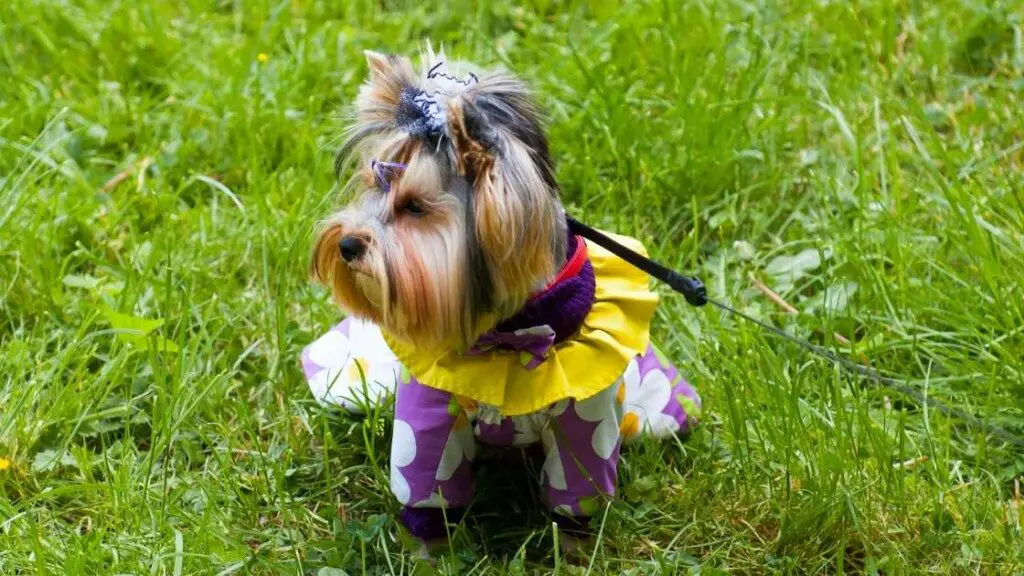
Yorkshire terriers get along rather well with humans. They may get along with humans a little too well. This breed is especially prone to separation anxiety, which can result in behaviors like barking, howling, pacing, chewing, and indoor accidents. Yorkshire terriers prefer the company of other humans over being alone, but they’re not ideal for homes with small children. Most experts recommend that families wait until their children are at least ten years old before considering a pet Yorkie.
Like all dogs, one Yorkie’s personality can differ from another and complicated by the quality of training. In most cases, a handful of treats is all it takes to win over a Yorkie.
Exercise Needs
Yorkshire terriers prefer being active, but it doesn’t take much to exercise their small bodies. A short daily walk or a game of fetch can provide all the physical stimulation they need. Thanks to their size, they can also be perfectly happy living in an apartment-sized home, unlike larger dogs.

In general, Yorkshire terriers should receive at least one leisurely walk a day and one cardio-heavy play session a week.
We recommended for Yorkshire terriers to walk with a harness instead of a collar. Many toy breeds are at risk of developing a collapsed trachea from pulling on the leash if attached to their collar.
Grooming and Care
When it comes to grooming, Yorkshire terriers require more than just the bare minimum to stay in optimum health. Their coats are lovely and glossy and can grow rather long, which calls for regular brushing. Show dogs have longer layers, parted down the middle of the back, and tied up at the top of the head. Owners with pet Yorkies may prefer to keep the coats short with a teddy bear or puppy cut. Along with regular trips to the groomer, Yorkies should also receive a weekly bath to keep their coats shiny and healthy.
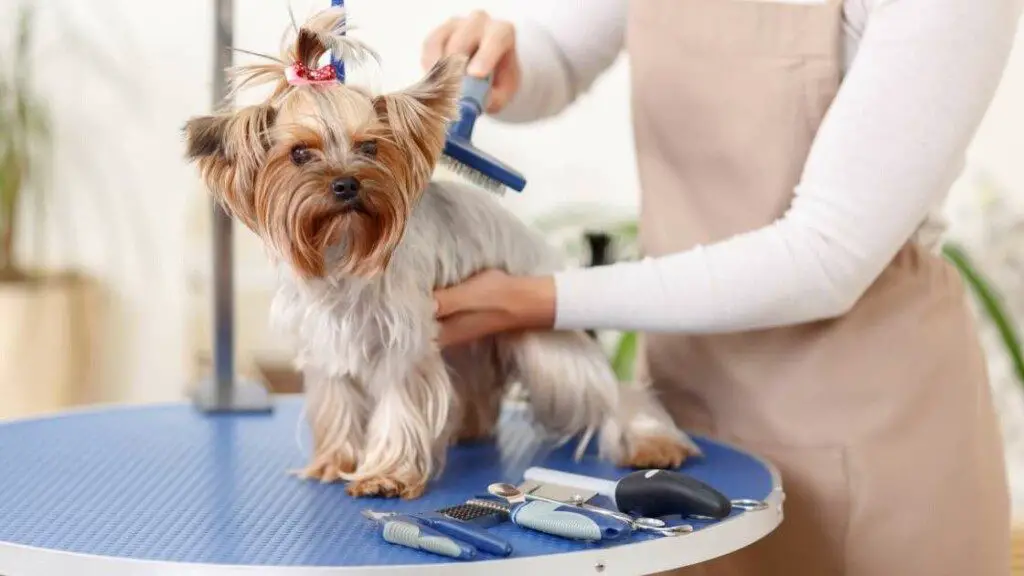
Like all dogs, Yorkshire terriers need regular nail trims, as well. Because dental problems are typical for the breed, Yorkie owners should also take special care to brush their pet’s teeth regularly with an enzymatic pet toothpaste.
Who Is This Dog For?
Thanks to their intelligence, friendliness, and trainability, Yorkshire terriers can make excellent companions for anyone who can find room for a pint-sized pup in their hearts. They have minimal exercise needs, so even a modest apartment can provide enough roaming ground for a Yorkie.
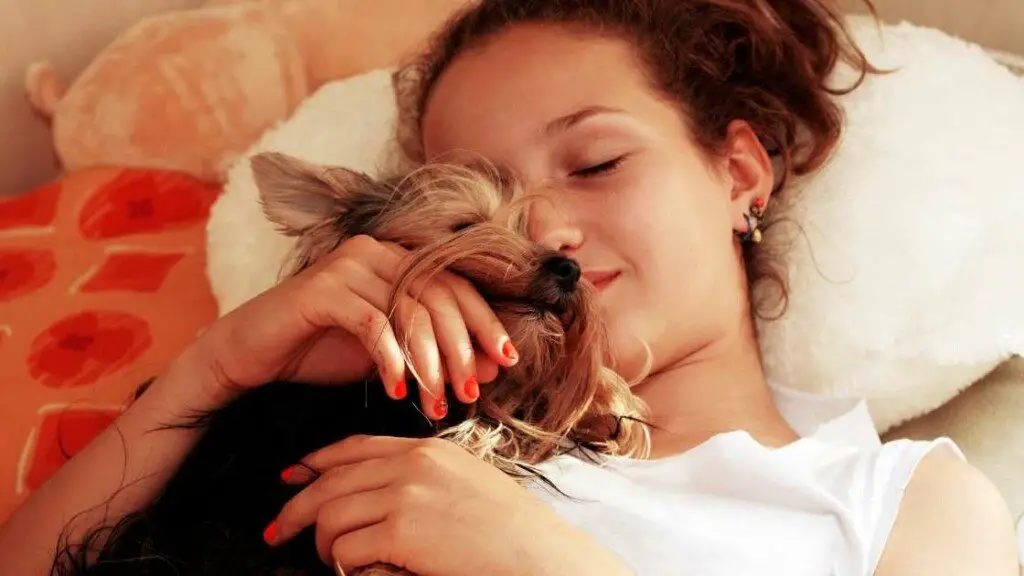
Yorkshire terriers are known to be yappy and very vocal. Therefore, many Yorkie owners report that their dogs make very effective watchdogs.
While Yorkshire terriers do well with kids, very young children might not understand how to handle a puppy without injuring it. Especially a puppy as small and delicate as a Yorkie puppy. Young children also may not appreciate the importance of consistent dog training. For these reasons, Yorkshire terriers are recommended only for adults or families with older children.
Known Health Issues
Healthy Yorkshire terriers can live 13-20 years, so they are a relatively resilient breed. However, a lot of the typical Yorkie traits got achieved through inbreeding. As a result, specific health issues get seen among Yorkshire terriers. The most common ones are:

Dental Problems
A Yorkie’s small jaw makes them more prone to tooth crowding. This small jaw gives plaque more surface area to grow in the mouth, leading to periodontal disease. Other complications include bad breath, tooth decay, and bacteria spreading into the bloodstream. Regular, at-home brushing and yearly professional dental cleanings are a must.
Joint and Skeletal Problems
Yorkshire terriers are vulnerable to hypoplasia of dens, a congenital non-formation of a vertebra in the spine. This defect can injure the spinal cord and cause neck pain, trouble walking, or quadriplegia. The breed is also prone to luxating patellas, when the kneecap pops out of place, causing the entire leg to lock. Surgery is the only intervention for both of these conditions. However, luxating patellas in Yorkies are rarely severe enough for surgery.
Tracheal Collapse
Tracheal collapse occurs when the walls of the trachea become weak and limp. A goose-like cough that doesn’t go away is one of the first signs of tracheal collapse in dogs. The condition can be treated with cough suppressants or surgery to repair the trachea. Vets also recommend walking Yorkshire terriers on harnesses to minimize the trachea’s exposure to physical damage.
Bladder Stones
Bladder stones are the formation of crystals in the bladder. In dogs, their presence can lead to pain, trouble urinating, and urinary tract infections. A dog with bladder stones might have a scruffy-looking coat, bloody urine. These dogs have more accidents, urinate more frequently with less urine coming out, vomit, or show a loss of appetite. The condition gets treated with medication, dietary changes, or surgery for severe cases.
Portosystemic Shunt
A Yorkie with a portosystemic shunt has an abnormal portal vein, which carries blood to the liver for filtering. With an abnormal portal vein, some of the unfiltered blood can bypass the liver and move on to infect other vital organs. Symptoms include disorientation, vomiting, diarrhea, and seizures. The consequences of an untreated portosystemic shunt include coma, blindness, and death. This condition gets corrected with routine surgery.
Luckily, many of the Yorkshire terrier’s fundamental issues can be addressed and corrected by a veterinarian. With a life span of up to 20 years, Yorkies live long, healthy lives besides their owners. Do you have a favorite story about the Yorkie in your family? Let us know about it in the comment box below.
